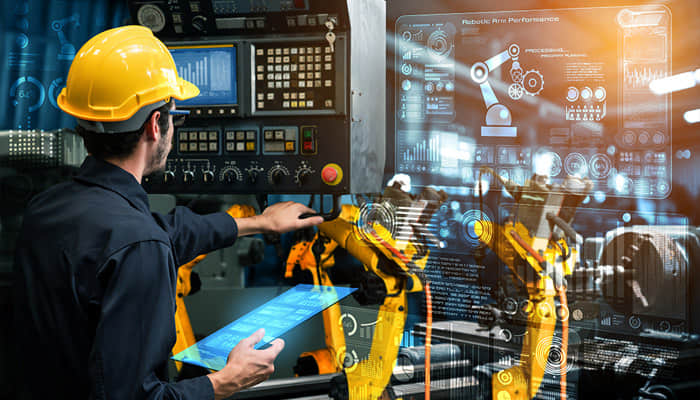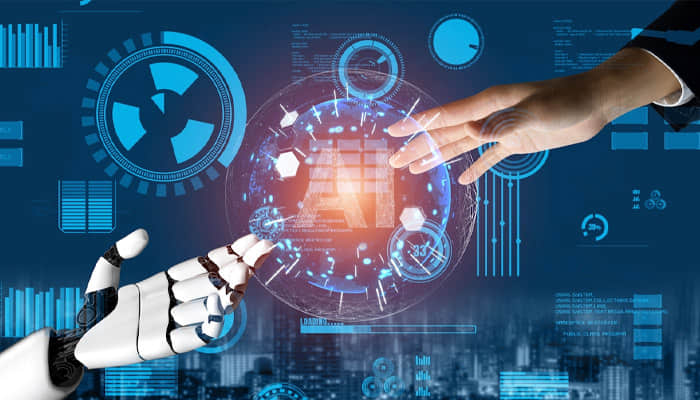Artificial intelligence (AI) and automation technologies are rapidly transforming the job market in 2025, reshaping how people work, the skills they need, and the very nature of many careers. Rather than simply replacing jobs, AI is augmenting them—automating routine tasks and enabling workers to focus on higher-value activities. This shift is creating new roles and opportunities while demanding workers adapt and upskill to stay relevant in an AI-driven world.
Enhancing Human Roles, Not Replacing Them

One key trend is that AI and automation are increasingly integrated into existing jobs to efficiently handle repetitive or data-heavy tasks. For example, marketing professionals can use AI-powered analytics to personalize campaigns at an individual level, freeing them to focus on creative strategy. Financial analysts spend less time gathering data as AI processes it, allowing more focus on interpreting insights and advising clients. Healthcare providers partner with AI diagnostic tools to improve accuracy and speed, dedicating themselves to complex patient care and relationships.
This human-AI collaboration boosts productivity and job satisfaction, as workers focus on tasks requiring creativity, emotional intelligence, and strategic thinking—areas AI cannot replicate. New job titles have emerged, including AI Ethics Consultant, Machine Learning Operations Specialist, and AI Product Manager, reflecting the growing demand for expertise that blends technology with human oversight.
Emerging Career Opportunities Fueled by AI

The rise of AI is driving demand for specialized roles across industries. AI and automation specialists design and refine intelligent systems, ensuring smooth AI integration. Data analysts and strategists interpret AI-generated insights to guide business decisions. Cybersecurity professionals are increasingly important as AI tools both defend against and enable cyber threats. In healthcare, AI powers innovative roles like virtual health assistants and robotics surgery support specialists.
As AI reshapes industries, there are exciting opportunities for workers who focus on AI-related skill sets and certifications. This demand reflects the growing indispensability of AI expertise in the modern workforce.
Preparing for an AI-Transformed Career Landscape

Adapting to AI’s impact means more than technical know-how; it requires embracing lifelong learning and flexibility. Professionals who proactively develop AI-related skills, along with creativity and communication abilities, will find themselves well-positioned. Certification programs in AI, data science, and cybersecurity can boost credentials. Those open to cross-disciplinary skills, such as combining healthcare knowledge with AI tools, will gain additional advantages.
AI Driving Productivity and New Job Creation

According to recent industry reports, AI adoption is linked to a fourfold increase in productivity growth by 2025—a trend reshaping workplaces globally. Far from eliminating jobs wholesale, AI is creating new categories of roles that require specialized skills in managing, interpreting, and optimizing AI systems. PwC’s Global AI Jobs Barometer shows strong growth not only in AI development jobs but also in AI-assisted roles across sectors like finance, healthcare, and manufacturing. This shift creates more high-value job opportunities requiring hybrid skills combining domain knowledge and AI literacy.
AI and Automation Enhancing Job Satisfaction

The integration of AI tools into routine workflows takes the burden of repetitive tasks off human workers, thereby increasing job satisfaction. For example, customer service agents use AI chatbots to handle common inquiries, freeing them to focus on complex and empathetic interactions. Similarly, in healthcare, AI supports clinicians by automating data entry and analysis, allowing more face-to-face patient care and decision-making input.
Growing Demand for AI-Related Skills and Certifications

The talent market reflects growing demand for AI-related capabilities. Workers with certifications in AI development, machine learning engineering, data science, and AI ethics are highly sought after. Many organizations are investing in upskilling their workforce through training and partnerships with educational institutions, emphasizing continuous learning. Emerging interdisciplinary roles—such as AI policy advisors or AI-human interaction specialists—highlight the diversification of career opportunities fostered by AI.
Evolution of Traditional Roles Supported by AI

Traditional roles are evolving as AI tools augment key job functions. For instance, financial analysts now use AI to automate risk assessment and forecasting, allowing more time for strategic advising. In law, AI-driven contract review accelerates case preparation, letting lawyers devote time to courtroom strategy and client counsel. This transformation requires workers to embrace AI literacy and gain skills in critically evaluating AI-supported decisions.
Preparing Future Professionals for an AI-Driven Workplace

Preparing the workforce for the AI-augmented future involves more than technical training. Soft skills such as adaptability, communication, emotional intelligence, and ethical judgment are critical. Educational institutions and corporate training programs are introducing curricula combining AI concepts with the humanities to produce well-rounded professionals. Flexibility and a lifelong learning mindset remain essential as AI technologies and job requirements continue to evolve rapidly.
Conclusion
AI and automation are revolutionizing careers by automating routine work, creating new roles, and transforming existing jobs. In 2025, success hinges on embracing human-AI collaboration, upskilling in AI technologies, and focusing on uniquely human skills that drive innovation and strategic value. Staying curious, adaptable, and prepared will empower workers to navigate this exciting new job market confidently and thrive alongside evolving technology.
